ProQuest LLC began as University Microfilm International (UMI), which was founded by Eugene B. Power in 1938 in Ann Arbor, Michigan. Power began the business with the idea of using microform technology to serve the low-demand publishing requirements of the scholarly community. One of UMI’s first areas for content acquisition was doctoral dissertations. At the time, U.S. doctoral students were required to pay the not-insignificant cost of self-publishing, producing multiple copies of, and often binding their dissertations. Within a year, UMI was microfilming dissertations and publishing the abstracts in Microfilm Abstracts, an annual catalog of the dissertations available for sale from UMI.
In 1985, UMI was sold to Bell & Howell, and in 1999 the business unit's name was changed to Bell & Howell Information and Learning. In 2001 Bell and Howell created the ProQuest Company out of two of its business units: Bell & Howell Information and Learning and Bell & Howell Publishing Services. In June 2001, “PQE” began trading on the New York Stock Exchange when Bell & Howell sold a minority of shares to the public.
In 1999 ProQuest acquired Chadwyck-Healey, a U.K. based microform and electronic publisher, which became a "specialist humanities publishing imprint of ProQuest."
In December 2006, the Cambridge Information Group (CIG) purchased the unit of ProQuest called ProQuest Information and Learning (which included UMI). Alan Aldworth, ProQuest Company's chairman and CEO, said, "This pending transaction . . . will significantly improve ProQuest Company's capital structure." CIG merged ProQuest with Cambridge Scientific Abstracts (CSA), a scientific database provider, and named the new company ProQuest LLC.
In October 2015 ProQuest acquired the Ex Libris Group. Ex Libris was an Isreali company that provided library automation solutions. ProQuest Ex Libris is a business unit that manages ProQuest's discovery, knowledgebase, and management tools. These tools include: Alma, Aleph, bX, campusM. Intota, Leganto, Primo, Rosetta, SFX, SIPX, Summon, 360 Link and Voyager. With this acquisition ProQuest became a direct competitor of other library technology companies such as Innovative Interfaces, EBSCO, OCLC, and SirsiDynix. ProQuest’s expansion into the library technology marketplace was a sound business decision. These products will control the use of their content and provide tools for analysis that customers want.
On June 22, 2016, ProQuest announced the acquisition of Alexander Street Press. Content from Alexander Street Press will be made available on ProQuest's platform.
ProQuest LLC, CIG owns a variety of other interests, including the publishing company Bowker. CIG is also the largest shareholder in Navtech, a supplier of flight operations information and aeronautical charts to the airline industry, and GWDI, a company that provides communication and data management to the aeronautics market. CIG owns other types of educational businesses, including MetaMetrics, a company that develops products and services that focus on improving teaching and learning in grades K–12; Sotheby’s Institute of Art, which offers postgraduate degrees and undergraduate study abroad programs in art scholarship, connoisseurship, and art business; and Bach to Rock (B2R), a chain of music schools designed for students from pre-school through adulthood.
